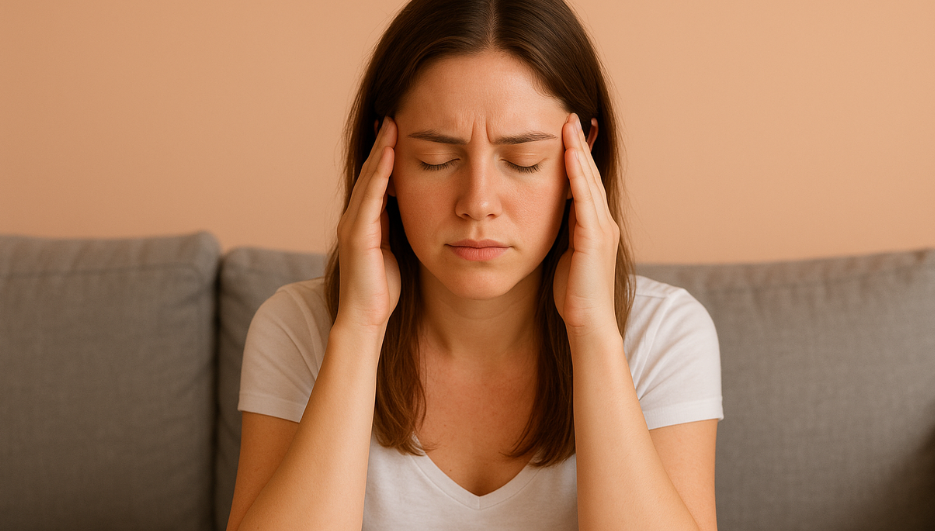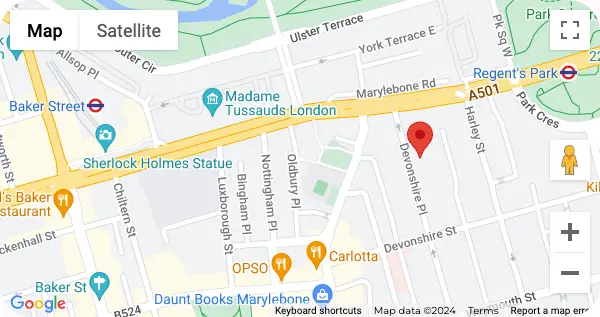Quick Summary
- About 5 to 10% of people in the UK get mild headaches while taking Mounjaro, especially in the first few weeks.
- Headaches usually get better and improve as your body adjusts to the treatment.
- To help prevent headaches, make sure to drink at least 2 litres of water daily, eat a regular balanced diet, sleep well, and manage stress.
- For headache relief, try painkillers like paracetamol or ibuprofen, proper hydration and magnesium-rich foods. Also try herbal teas and gentle massage.
- For severe headaches that come with vision changes or other symptoms, it is best to speak to your doctor.
What is Mounjaro Headaches
Mounjaro is a once a week injection that contains tirzepatide, a medicine that copies the two of the natural hormones in the body, the GLP-1 and GIP. These hormones help manage blood sugar, appetite, and digestion.
By slowing digestion and helping you feel full for longer, Mounjaro reduces your calorie intake to keep your blood sugar at a steady level. It is first developed to treat type 2 diabetes and is now being used for weight loss treatment.
It also changes how your body handles food, fluids, and hormones, that is why Mounjaro can sometimes affect hydration, nutrition and blood flow, all are factors to experience mild headaches in some people.
Common Symptoms
There are different ways people experience Mounjaro headaches. Some feel a tight or heavy feeling on the forehead, others feel pain at the sides or back of the head. Some may also be sensitive to light or noise or notice feeling tired and heavy-headed.
How to Spot Mounjaro Headaches
Headaches can happen:
- When you start using Mounjaro
- After your dose increase
- If you do not drink enough water
- When you skip meals
- If you are tired and stressed
Try to keep notes of when your headaches happen. Also write down your injection schedule, your food, water intake, sleep and stress. All these things will help your doctor find the cause of your headaches.
Can Mounjaro Cause Headaches?
Why It Might Happen
Changes in the body while taking Mounjaro can lead to headache:
- Dehydration: You may decrease thirst and appetite on Mounjaro.
- Low blood sugar (hypoglycemia): Eating too little or skipping meals can cause your blood sugar to drop.
- Mineral loss: Your body can lose important minerals when you lose weight. Minerals like sodium, magnesium, and potassium which are needed for healthy nerves and muscles.
- Blood flow changes: Mounjaro can slightly affect how your blood vessels expand, which can trigger headaches.
- Lack of sleep or stress: Hormonal changes from Mounjaro affect your sleep or stress levels that can lead to tension headaches.
Some research in the UK shows that GLP-1 drugs might briefly affect pressure inside the head, but this is rare and temporary.
Risk Factors That Can Make Headaches More Likely
You are more likely to get headaches if you:
- Start with a higher dose right away
- Do not drink enough water while losing weight quickly
- Have migraines
- Take diuretics or blood pressure medications
- Irregular drink caffeine or stop it suddenly
- Experience stress or do not sleep well
Effective & professional doctor-led Mounjaro at our central London clinic
How Common are Headaches on Mounjaro
How Often Do They Happen?
In some UK studies, about 5 to 10% of people taking Mounjaro reported headaches, compared to 6 to 7% of people who are not taking it.
This means, Mounjaro is not the direct cause of headaches, but by the changes that happen in your body while on Mounjaro.
Most headaches happen in the first month, and go away after a few weeks, and do not require stopping the treatment.
Compared with Other GLP-1 Medicines
When compared to other GLP-1 medicines like Ozempic and Wegovy, Mounjaro causes similar types of mild headaches. This shows that headaches are common side effects of GLP-1 drugs, not just Mounjaro alone.
If you switch between brands, it can also cause mild and short-term headaches as your body adjusts.
Top Pain Relievers for Mounjaro Headache
| Remedy | What to Do |
| Over-the-counter medicines |
|
| Stay hydrated |
|
| Eat balanced regular meals | Have small meals every 3 to 4 hours, including:
|
| Sleep and stress management |
|
| Magnesium-rich foods and supplements | Include foods like:
|
| Gentle massage and cold compress |
|
| Caffeine control |
|
| Avoid alcohol |
|
For more information, check our guide on Understanding Mounjaro Long‑Term Side Effects: Key Insights.
Simple Tips to Prevent Mounjaro Headaches
Here are ways to reduce them:
- Eat regular, balanced meals and drink enough water to hydrate your body.
- Carry a water bottle and always keep track of how much is your water intake.
- Rest your eyes by taking a short break from the screen.
- Disclose to your doctor any medications you are taking, as some can cause headaches.
- Note down your symptoms in a phone or journal to track patterns
For most people, headaches disappear or improve as their body adjusts and if they stay hydrated.
When to Call Your Doctor
Warning Signs to Watch For
Call your doctor of NHS 111 immediately if:
- Severe headaches that last more than 3 days.
- Blurred vision, double vision, or flashing lights.
- Confusion, weakness, or trouble speaking.
- Sudden, intense headache (the worst you’ve ever had).
- Vomiting, stiff neck, or fever.
These are signs of other medical conditions like migraines, high blood pressure, and infections.
Talking to your Doctor
If headaches do not improve in a month, you can:
- Ask your doctor if your dose should be changed.
- Check your blood sugar for drops in levels.
- Drink enough water to hydrate.
- Ask for another GLP-1 medicine that might work for you.
Your doctor can also report your side effects to the MHRA Yellow Card Scheme to help track medicine safety in the UK.
UK Tips to Remember
- Drink enough water: The NHS recommends drinking 6 to 8 glasses of water a day, or more if you are active.
- Eat balanced meals: Follow the NHS healthy plate, half fruit and vegetables, a quarter wholegrains, and a quarter protein.
- Monitor your blood sugar: If you are diabetic, check your glucose levels often when your Mounjaro dose changes.
- Report side effects: Use the Yellow Card System to tell the MHRA about ongoing unusual symptoms.
For more help, explore:
How Long Do Mounjaro Side Effects Last?
How Much Weight Can You Lose on Mounjaro In A Month?
Mounjaro and Alcohol: Safe Drinking Practices Explained
What to Eat on Mounjaro: 10 Healthy Choices
Simple Summary
- About 1 in 10 people in the UK using Mounjaro may get headaches, but they are mild and short-term.
- Headaches in Mounjaro often caused by not drinking enough water, hypoglycemia, eating less, stress, or poor sleeping habits.
- How to feel better:
- Take paracetamol or ibuprofen, when advised.
- Drink at least 2 litres of water every day.
- Eat Regular and balanced meals.
- Add magnesium-rich foods like nuts, greens, and wholegrains.
- Rest and manage stress.
- Stay hydrated, eat well, sleep enough, limit alcohol, and reduce caffeine are some ways to prevent them.
- If headaches are severe, last over 2 weeks, or come with vision problems, confusions, speech issues, contact your GP or NHS 111.
FAQs
- Does Mounjaro cause headaches?
Yes, but usually caused by dehydration, or lifestyle changes, and not because of a harmful reaction from the drug itself.
- How common are they in the UK?
Around one in ten users experience headaches, most go away in a few weeks.
- What triggers them?
It is because of low hydration, blood sugar drops, stress, or poor sleep in early treatment.
- What helps relieve them?
Hydrate, eat balanced meals, rest, and try gentle massage.
- When should I see a doctor?
For persistent headaches and comes with other symptoms like vision or speech issues.
Reserve a mounjaro appointment
One of our experts will be more than happy to answer any questions you have.
Book AppointmentRosie McDonald
★★★★★
Dr Basu was kind & helpful - we were able to do the procedure on the day which was great!
31st January 2026
Matt Empringham
★★★★★
Great experience
28th January 2026
MsRm909
★★★★★
Excellent service as usual
31st January 2026








